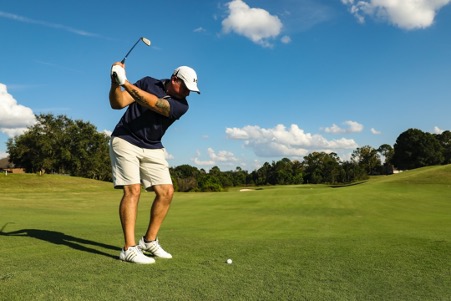Hideki Matsuyama won the Masters, Phil Mickelson won the PGA Championship, and Jon Rahm took home the title at the U.S. Open, so when are you going to tee it up at the majors? Okay, maybe that's a pipe dream for now, especially if you're recovering from an injury or haven't hit the driving range in some time. However, there are a few things you can do to get back to better golf and feel like you're pursuing the Green Jacket at your home course.
Physical Fitness
In the event that an injury requires the need for prescription medications, be sure to follow through on medical treatment as laid out by your healthcare provider. Websites like USA Rx (www.usarx.com) offer price comparisons that let patients find their medication at a fraction of the cost. The truth is the price you pay at your pharmacist could actually be less at a different pharmacy or through the use of coupons. Discounted drugs are also available by looking into generic options of name-brand prescription medication.
Easing Back into Things
Clinics are able at most public golf courses, country clubs, and driving ranges. Some even offer up a junior golf clinic for aspiring young golfers to learn the ins and outs of the game from golf etiquette to perfecting their bunker play. This builds confidence in golfers over time to feel ready for contests on the links. It will also help pinpoint areas of improvement, and also give consideration to the golf clubs that a person may be using. A junior golfer especially may grow out of a set of clubs, finding themselves hunching over too much to drive or putt, leading to muscle irritation.
Assessing Your Game
If you haven't played golf in a while, recognize that it will take some time to wear off the rust and find your touch again. The COVID-19 pandemic kept all golfers off the greens for a while, and even when courses reopened, there were limited tee times to go around. Have fun and don't be afraid to recognize your faults. They can be fixed with a few little interventions!


